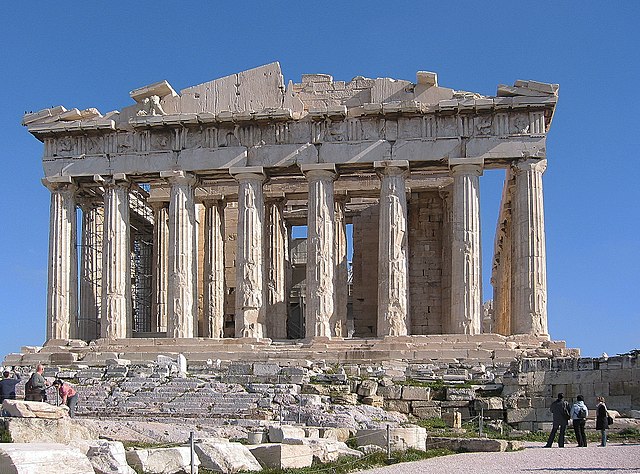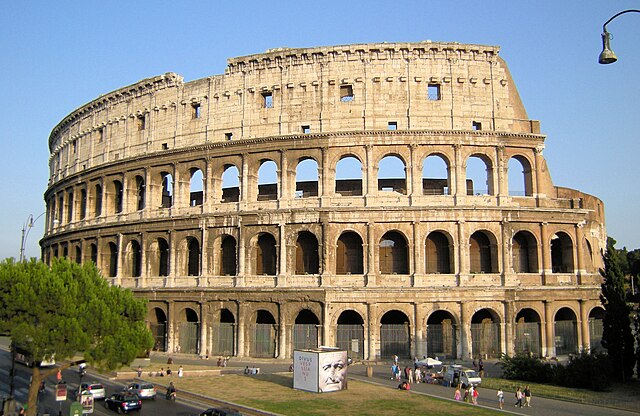Colonies in antiquity were post-Iron Age city-states founded from a mother-city or metropolis rather than a territory-at-large. Bonds between a colony and its metropolis often remained close, and took specific forms during the period of classical antiquity. Generally, colonies founded by the ancient Phoenicians, Carthage, Rome, Alexander the Great and his successors remained tied to their metropolis, though Greek colonies of the Archaic and Classical eras were sovereign and self-governing from their inception. While Greek colonies were often founded to solve social unrest in the mother-city by expelling a part of the population, Hellenistic, Roman, Carthaginian, and Han Chinese colonies were used for trade, expansion and empire-building.
Ruins of a peristyle home from the Greek period of Empúries, Catalonia, Spain
Classical antiquity, also known as the classical era, classical period, classical age, or simply antiquity, is the period of cultural European history between the 8th century BC and the 5th century AD comprising the interwoven civilizations of ancient Greece and ancient Rome known together as the Greco-Roman world, centered on the Mediterranean Basin. It is the period during which ancient Greece and ancient Rome flourished and had major influence throughout much of Europe, North Africa, and West Asia.
The Parthenon is one of the most recognizable symbols of the classical era, exemplifying ancient Greek culture.
The Colosseum, a prominent symbol of the Roman classical era and culture



